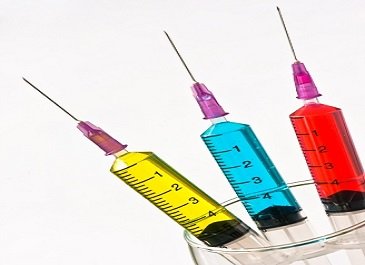India joins WHO's Global Injection Safety Campaign
July 29, 2016 | Friday | News | By BioSpectrum Bureau
India joins WHO's Global Injection Safety Campaign
On World Hepatitis Day, India became one of the first countries to join WHO's Safe Injection Campaign
Safe Point India, a not-for profit society working in the field of public health and safety, has lauded and fully endorsed the WHO's and Government of India's noble initiative to eliminate viral Hepatitis by 2030 by launching Global Safe Injection Campaign. It is especially happy to note the acknowledgement of the role that safe injections can play in eliminating a health scourge that claims over 3,50,000 lives each year globally and is the number two communicable disease killer of human lives after tuberculosis.
On World Hepatitis Day, India became one of the first countries to join WHO's Safe Injection Campaign which is integral to eliminating strategy of hepatitis by 2030. As per WHO, 33% of Hepatitis B and 42% of Hepatitis C cases are attributed to unsafe injections! It may also be noted that in the South-East Asia Region, viral hepatitis is driving rates of liver cancer and cirrhosis, and is causing premature death and disease with over 100 million people chronically infected with hepatitis B and hepatitis C.
Government of India on the World Hepatitis Day committed to renew the effort to eliminate unsafe injections and has announced 3-year transition time for manufacturers to phase out standard disposable syringes and switch to auto disable syringes and safety syringes as part of hepatitis elimination intervention strategy.
"Injections should be life giver, not life taker and prevention is always better than cure. Sadly, as pointed out by WHO, nearly 33% of Hepatitis B and 42% of Hepatitis C are attributed to unsafe injections. Unsafe injections mostly in the form of reuse of safety injections continues to be a serious threat to life of patients and health workers, casting shadows over public healthcare and immunization programs while raising individual and national healthcare cost burden," said Rajiv Nath, Project Director & Trustee, Safe Point India, a frontline not-for-profit society working in the field of public health and safety.
"I am especially happy to note that safe injections along with vaccination and better access to healthcare has been now been officially endorsed as key to eliminating a major public health scourge. Swach Bharat Campaign for addressing Hepatitis A & E and a Swach Injection Abhiyan has long been needed for addressing Hepatitis B&C for ensuring Clean Healthcare and Clean Needles. This will not only ensure better health to common Indians but would also bring in great savings in terms of public health spending in the long run," added Mr. Nath.
According to a WHO study, for every 1$ (67) invested in injection safety, savings are to the tune of over 14 $ (938₹) in hidden cost of public healthcare spending for treatment of ailments.
This is substantial and to correlate one can compare with another WHO study - every 1$ invested in immunisation has been resulting in 16$ savings to a Nation. Prevention is far less cost than Cure.
Mr Nath informed that a number of pilot projects on injection safety would be undertaken by GoI and WHO starting from Punjab which has the highest incidence of Hepatitis C even though it is an affluent state possibly due to dangerous cocktail of drug abuse and unsafe injection practices . The other states reported with high incidence of Hepatitis C are Haryana, North Eastern States and coastal areas of Andhra Pradesh and Tamil Naidu.









